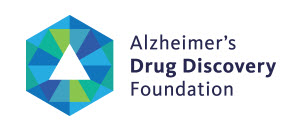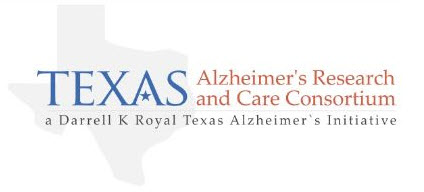 PREVENTION BEYOND THE PIPELINE
PREVENTION BEYOND THE PIPELINE
The ADDF seeks to support comparative effectiveness research, prevention clinical trials, and epidemiological studies that probe whether the use or choice of drugs alters the risk for dementia or cognitive decline.
Specifically, the Prevention Beyond the Pipeline RFP supports:
Studies Leveraging the Consortium of Cohorts for Alzheimer's Prevention Action (CAPA):
Epidemiological studies contribute unmatched information on whether the risk of dementia or cognitive decline may be influenced by long-term exposure to specific foods or supplements. However, high-powered studies are needed, ideally with dose, duration, and responder profiles, in order to translate epidemiological research into actionable interventions for testing. Through the CAPA Consortium, the ADDF funds collaborative analyses on dementia prevention using a minimum of five longitudinal cohorts, either harmonized or analyzed through parallel analysis of cohorts using a shared analysis script.
More information here.
Comparative Effectiveness Research:
For many health conditions, physicians have a choice of clinically equivalent drugs. Some of these drugs are being investigated for repurposing to treat Alzheimer's or related dementias, due to potential disease-modifying properties that go beyond the treatment of their approved disease indication. The ADDF will consider funding research to generate an evidence base on whether choices in the routine clinical care of pre-existing conditions could protect from dementia. Priority will be given to the comparison of drugs that are otherwise clinically equivalent for the pre-existing condition (see Box 1 in the
ADDF 2016 position paper). Methods may include randomized trials or epidemiology.
Studies of Cognitive Decline and Cognitive Reserve:
Cognitive decline through aging and health conditions has been linked to an increased risk of dementia. The ADDF will consider funding programs to prevent and treat these conditions, including cognitive aging, menopause-related cognitive symptoms, postoperative delirium and postoperative cognitive decline, mild and/or repetitive traumatic brain injury, and chemotherapy-induced decline. Methods may include epidemiology or clinical trials. For clinical trial proposals, please see below detailed instructions and priorities under “Funding Priorities for Clinical Trial Proposals” and “Evaluation of Clinical Trial Proposals”.
Current target areas of interest include:
Epigenetics, Inflammation, Mitochondria & metabolic function, Neuroprotection, Proteostasis, Synaptic activity and neurotransmitters, Vascular function, Other aging targets (e.g. senescent cells) and other novel targets or pathways that are supported by compelling evidence demonstrating a rational biological connection to age-related cognitive decline or dementia risk
Average Award
- $50,000-$100,000 for epidemiological analyses
- Up to $3,000,000 for clinical trials based on stage and scope of research
- For studies requiring additional support, co-funding from other funding agencies or investors is encouraged
- Payment structure will be negotiated and based on milestone achievements and recruitment
Deadlines: (rolling deadlines)
Letter of Intent Letter of Intent Letter of Intent
January 17, 2020 April 10, 2020 July 10, 2020
Invited Full Proposal Invited Full Proposal Invited Proposal
February 7, 2020 May 8, 2020 August 7, 2020
Letter of Intent
October 9, 2020
Invited Full Proposal
November 6, 2020
 Early Career Awards
Early Career Awards
The Fund recognizes that young investigators may find it difficult to remain in pediatric research because of a lack of funding. Therefore, the purpose of this program is to encourage the development of medical research in child health by awarding small grants to new researchers, helping them gain a foothold in this important area. The goal is to fund applicants who will go on to be independent investigators.
Concept Submission Deadline: March 17, 2020 @ Noon MST
Proposal Submission Deadline: May 8, 2020 @ Noon MST
 Competitive Grant Program for Rheumatology
Competitive Grant Program for Rheumatology
Pfizer Global Medical Grants (GMG) supports the global healthcare community’s independent initiatives (e.g., research, quality improvement or education) to improve patient outcomes in areas of unmet medical need that are aligned with Pfizer’s medical and/or scientific strategies.
Pfizer’s GMG competitive grant program involves a publicly posted Request for Proposal (RFP) that provides detail regarding a specific area of interest, sets timelines for review and approval, and uses an external review panel (ERP) to make final grant decisions. Organizations are invited to submit an
application addressing the specific gaps in research, practice or care as outlined in the specific RFP.
For all Investigator Sponsored Research (ISRs) and general research grants, the grant requester (and ultimately the grantee) is responsible for the design, implementation, sponsorship, and conduct of the independent initiative supported by the grant, including compliance with any regulatory requirements. Pfizer must not be involved in any aspect of study protocol or project development, nor the conduct or monitoring of the research program.
Both early career and experienced investigators are encouraged to apply
and consideration will be given to all proposals meeting the selection
criteria.
Proposal Due Date: January 27, 2020 @ 11:59 pm EST
 Young Investigator Award
Young Investigator Award
The Young Investigator Award (YIA), CTF’s longest running award program, provides funding for two years to early-career NF researchers, helping them to get established as independent investigators. Initiated over 30 years ago, the main function of the YIA program is to serve as a ‘seeding mechanism’ for researchers to secure larger grants, such as from the NIH and CDMRP NFRP. Several former YIAs are now leaders in the NF research and clinical communities. In fact, CTF’s ‘seeding’ of the NF field with new talent has been hailed as a key reason for rapid advancements in NF research in recent years.
Eligible applicants must be a postdoctoral fellow (MD, PhD, or equivalent) no more than seven years past completion of their first doctoral degree or a graduate student pursuing their MD, PhD, or equivalent.
The focus of YIA research includes but is not limited to –
-
NF1, NF2, and schwannomatosis
-
NF manifestations such as –
-
Neurofibromas, schwannomas, malignant peripheral nerve sheath tumors, other brain and nervous system tumors
-
Bone abnormalities
-
Cardiovascular abnormalities
-
Learning disorders
-
Pain
Letter of Intent Due: January 3, 2020
Invited Application Due: March 6, 2020

2020 TARCC Grant Program
The Texas Alzheimer’s Research and Care Consortium (TARCC) is pleased to announce its FY2020 Request for Applications (RFA) as part of a research program to support an innovative, translational-based research structure at member institutions across the state of Texas, and to ensure that a diverse pool of well-trained clinician-scientists are available in Texas to aid in the fight against Alzheimer’s disease and related disorders.
Applications Due: March 20, 2020 by 5pm CST
--END--